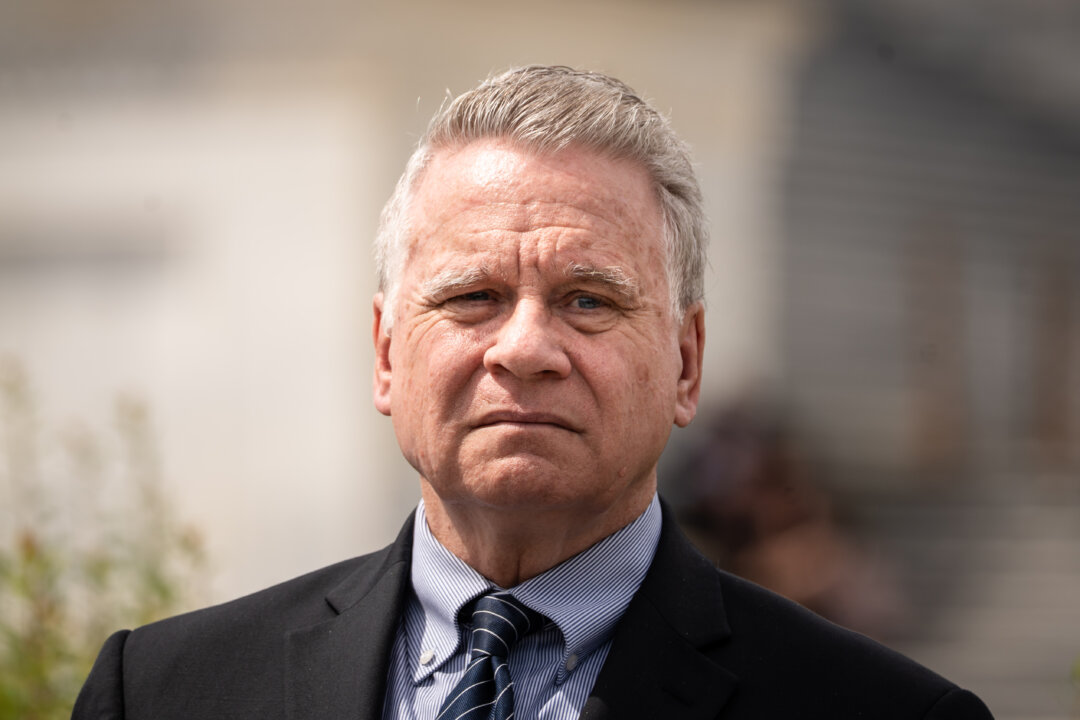The hot mic moment during which China’s and Russia’s leaders were musing about increased longevity through organ transplants speaks to more than their mutual desire to stay in power.
It touches on a sensitive topic for the regime—forced organ harvesting—the very mention of which Beijing has striven to erase, even in the West.
Rep. Chris Smith (R-N.J.), a lawmaker who monitors human rights abuses abroad, said that the off-the-cuff exchange—and the casual way organ transplants came up—was unsettling.
“It shows how cruelty knows no bounds,” Smith told The Epoch Times.
Chinese leader Xi Jinping and Russian President Vladimir Putin, while walking together before a military parade on Sept. 3, discussed becoming younger with continued organ transplants. Xi suggested the possibility of living to 150 years old in this century.
The conversation signals a seeming abundance of organs for China’s top political echelon, known for extravagant privileges inaccessible to the Chinese public. How and where to source the organs seemed an afterthought.
Independent investigations from the London-based China Tribunal and others have found the killing-for-organs scheme to be widespread in China, with the source of organs being detained practitioners of Falun Gong, who have been a target of brutal persecution by the regime since 1999.
That Beijing has no desire for the publicity of the conversation was clear. Chinese media outlets have taken down videos containing the clip or covered the sound with music in replays.

But Putin confirmed the talk quickly later in the day.
“The modern means of health support, medicine, even some surgeries involving organ transplantation, allow humanity to hope that the active life span will not be like today,” he told reporters, adding that “it differs from country to country.”
Smith said the message that came across in these remarks seems to be “I don’t care.”
“My own argument has been that from Xi Jinping on down, anybody in the higher echelon, especially in the Chinese Communist Party, will look to steal somebody else’s internal organs, through coercion, through death, to extend their life. I can’t think of a more selfish and barbaric act to do that,” Smith said.
“They’re so brazen about abusing other people for their own will and for their own longevity.
“They have secret police and the ability to jail anybody they want.”
Putin, the congressman said, “may or may not be in ill health, so he’ll want to have any new organ that he thinks he requires.”
Smith said that voluntary organ transplantation is completely ethical, but that “there’s nothing voluntary” about what is happening under the communist regime.
Smith said it first came to his attention that the Chinese regime was taking organs from executed prisoners in about 1998, before the organ trade grew to what he called “industrial size.”
The organ transplant industry has since experienced a boom, paralleling the expansion of the persecution of Falun Gong that began in 1999. Hospitals in China have advertised waiting times as short as days, a major draw for tourists from countries with developed organ donation systems, such as the United States, where getting an organ could take much longer.
“[In China,] they go and they kill somebody who matches up with your antigens and everything else, so that there’s no or less likely to be a rejection of the organ,” Smith said. “I’ve never seen anything like it, except in Nazi Germany, and I think that’s what we’re talking about here—it’s Nazi-like.”
The “most perverse thing,” he said, is that the persecutors will turn to the persecuted to help extend their lives. And Falun Gong practitioners’ healthy lifestyle—meditating, not smoking or drinking, and adhering to their practice’s tenets of truthfulness, compassion, and tolerance—makes them an ideal target for organ procurement.
“It’s a genocide against the Falun Gong, like it’s a genocide against the Uyghurs,” he said. “There are so many horrible human rights abuses in the world today. This is right at the top.”

While hospitalized three years ago for some ailments, Smith thought about the contrast between the role of the doctors treating him and those in China.
In China, doctors could become an “oppressor,” stealing one’s organs under state order, he said.
Five U.S. states have passed laws to stop health insurance coverage of organ transplants linked to China. Smith sponsored the Stop Forced Organ Harvesting Act, which aims to punish “end game abusers,” brokers, and others implicated in forced organ harvesting or organ trafficking schemes. The bipartisan bill passed 406–1 in the House in May.
House Speaker Mike Johnson (R-La.) said on Sept. 3 that the overheard remarks have brought new urgency to addressing the Chinese regime’s organ transplant abuses. He suggested putting relevant legislation “at the top of the priority list.”
Smith, likewise, called for the Senate to “act fast” and move the bill up.

